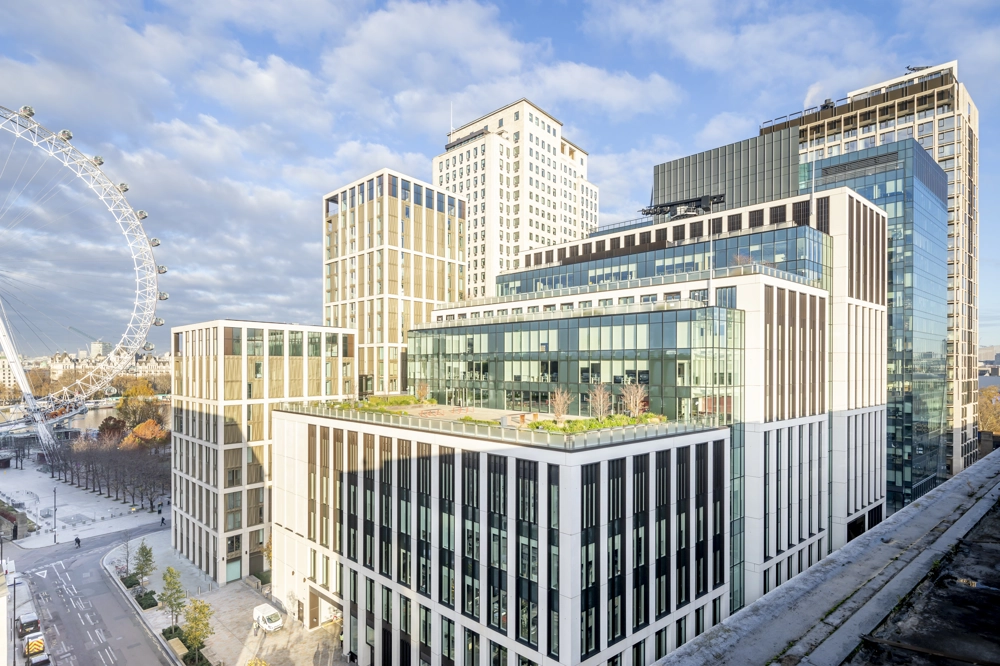Media enquiries relating to housing.
Professor Sir Michael Marmot joins Mayor Driscoll, Sir Nigel Wilson, and leaders from across the region to improve health equality
On Monday 20 June, internationally renowned epidemiologist Professor Sir Michael Marmot led a roundtable with the North of Tyne Combined Authority’s Metro Mayor Jamie Driscoll, supported by Legal & General’s Sir Nigel Wilson, to discuss how the public sector and business can improve people’s lives by reducing health inequality.
20 Jun 2022
Full press release

The roundtable brought together high-profile local leaders to discuss both the progress the region has made to reduce health inequality and targeted actions to continue this progress in future. Attendees included Dame Jackie Daniel (Chief Executive at Newcastle Hospitals), Dr Henry Kippin (CEO of North of Tyne CA), and key leaders from the industry and the public sector.
The UCL Institute of Health Equity (IHE), in partnership with Legal & General, launched The Business of Health Equity: The Marmot Review for Industry, setting out ways in which business can improve people’s lives by reducing health inequality.
The North of Tyne roundtable marks the first place Sir Michael and the partnership have visited since IHE launched the report.
The study found that, by improving the health of their employees, employers benefit from a more productive workforce. It has been estimated, for example, 30% of the shortfall in productivity in the Northern Powerhouse compared with the rest of England is due to ill health.
Poor health is closely associated with deprivation. Almost 40% of neighbourhoods in Newcastle specifically are amongst the most deprived 20% across England.
Healthy life expectancy at birth is significantly lower in Newcastle than the England average. Over the last decade the number of years a child born in Newcastle can expect to live in good health is now lower than it was in 2009-10. A female born in Newcastle in 2017-19 can expect to live 56.4 years in good health, compared with 60.8 years in 2009-10.
This latest Marmot Review, published by the UCL Institute of Health Equity in partnership with Legal & General, confirms that businesses with a strong social purpose attract and retain the best employees - who increasingly seek more than just a paycheque.
The report points out that employees who feel emotionally connected and understand how they personally contribute to their organisation have a stronger sense of wellbeing. Research shows having a sense of purpose in life is highlighted as a key feature for living to be over 100.
Nigel Wilson, CEO, Legal & General: “Legal & General’s ongoing partnership with the IHE has underscored that health is a fundamental driver of business success and true ‘Levelling Up’. We are encouraging businesses to move beyond ESG to focus on ESHG — such is the importance of health inequality in improving people’s lives. The one-two punch of COVID and economic pressures has put workplace productivity high on the business agenda, but for Newcastle’s businesses to truly unlock employees’ productivity potential, employers in the region need to recognise and tackle the major obstacle posed by health inequities. This roundtable is an opportunity to both celebrate achievements in this area and ensure a committed effort to continue improving health equity and productivity in the region.”
Professor Sir Michael Marmot, Director, UCL Institute of Health Equity: "There is great potential for businesses to contribute more in the endeavour to reduce unnecessary and unjust health inequalities which are so prominent in the North of Tyne Region. Business can and should help improve the health of their workforce, ensure products and services support good health, and make great contributions to local communities; in sum to be positive forces for health equity. is nowhere more crucial for action than in the North-East of England where levelling up is key to addressing health equity."
Metro Mayor Jamie Driscoll: "People in the North East are dying younger than anywhere else in England. Despite having some of the UK's best hospitals, serious illnesses affect people earlier in life, too. This health gap ruins people's quality of life and hammers their ability to earn a good living. It's a vicious circle that we have to break. The answers lie in better housing, better paid work – better life chances full stop. A healthy life means believing you have a good future. We need to invest upfront, or we'll be paying the human and economic costs for a generation."
Further information





